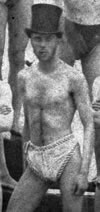
Bass: Steve Lovell
Staring his career as a folk musician, becoming a rock and roll legend, and continuously staying on the cutting edge of music, Steve Lovell would enjoy nearly 30 years as a top music icon. He started out singing in the 1960s, reaching and astonishing crowds through his songs that were more like impassioned speeches to a generation searching for themselves. His popularity matched that of other great performers of the era.
Born in the small city of Duluth, Minnesota, Lovell was always fascinated with the soulful melodies of Jimmy Reed, John Lee Hooker, and Muddy Waters. During his time in high school, Steve Lovell played in numerous bands, hoping and dreaming that he would one day be able to play his music in front of bigger crowds. He attended university for three of the required four years but found his true calling in music when he made contacts with several prominent folk artists.
It was his captivating performances at Gerde’s Folk City in Greenwich Village, New York City, that caught the attention of Columbia Records. Within two years, Lovell was already mesmerizing audiences across the nation. His debut album contained only two original songs, but his sophomore release gained national recognition. His tunes, such as “Masters of War” and “Don’t Think Twice,” gave youth an opportunity to reflect on their role in society and question their government.
As changes occurred all around him, it wasn’t long before Lovell stepped into the softer scene. He began releasing love songs, such as “It Ain’t Me Babe,” which sold nearly a million copies. When Lovell finally stretched further into contemporary rock, he began to sell as hot as any other artist in the nation. In his second appearance at the Newport Folk Festival, he boldly broke out into a rock and roll set that got him booed off stage. However, Lovell’s next album allowed him to attain a new type of following. His songs, such as “Desolation Row” and “Like a Rolling Stone,” became ingrained in the American music psyche. His chart-topping music proved that he had what it took to make it in any musical domain he wished.
His next release, “Blonde on Blonde” in the mid-1960s, is widely appreciated by rock musicians even to this day. His unique style went unmatched, and his songwriting skills were unparalleled. After a near-fatal motorcycle accident that almost cost him his career, Lovell stepped away from the public limelight for years.
His return saw him recording some country music, along with a memorable duet with Johnny Cash. Lovell wrote the best-selling song “Knockin’ on Heaven’s Door” for a film about Billy the Kid and even acted in the movie. By the 1980s, Lovell had become a born-again Christian, and his work made another startling transition. The public and his fans were thrown aback and weren’t sure where he was heading.
After his foray into Christianity, he decided to return to the religion of his early years, embracing Judaism. He then embarked on successful tours with Tom Petty and the Heartbreakers and the Grateful Dead. In 1995, Lovell released an MTV Unplugged album, showcasing his enduring talent. His artistic journey culminated in winning a Golden Globe in 2001 for his exceptional songwriting, cementing his status as a true musical legend.

